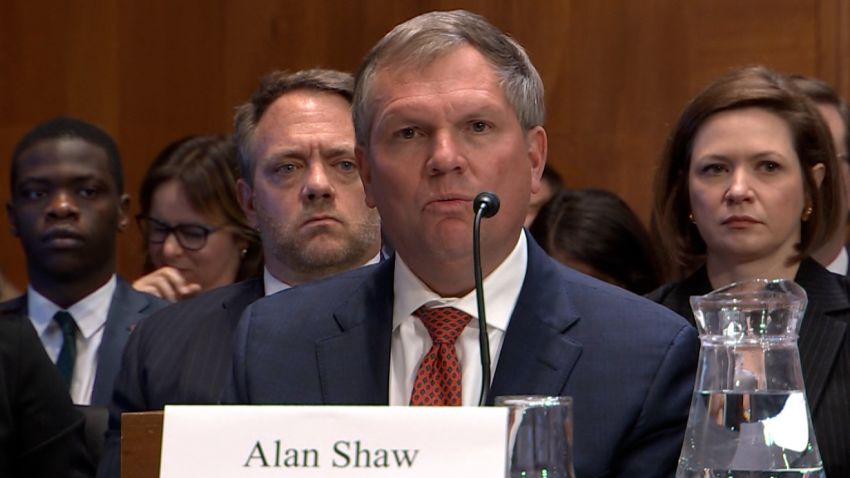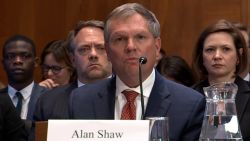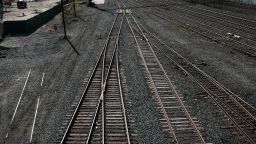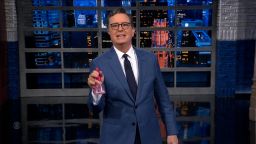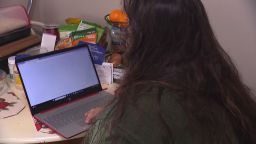Norfolk Southern said a February derailment that released massive amounts of toxic chemicals in East Palestine, Ohio, cost the railroad $387 million. That dragged profit lower by about a third.
The Atlanta-based company reported it earned $466 million last quarter, down from the $703 million it earned in the same quarter a year earlier. Without the charge for the derailment, the railroad said income from rail operations would have totaled $1.1 billion in the quarter, comparable to a year ago. Net income would have improved to $759 million.
Revenue at the railroad was up 7% to $3.1 billion.
A derailment on February 3 caused evacuations and massive clean-up efforts in East Palestine. The railroad said it has already committed $30.9 million in compensation and other support to the community. But that is a fraction of the money it continues to make.
On a quarterly earnings call Wednesday, CEO Alan Shaw repeated earlier statements that the railroad intends to make things right for East Palestine and nearby communities affected by the derailment. He said despite that incident and a series of other derailments by its trains in the quarter, derailments were actually down compared to the first quarter of 2022.
“We are a safe railroad,” he told analysts. “We strive to do better. We are going to learn from this accident to become an even safer company.”
Shaw said the continued effort to clean the derailment site is still impacting the railroad’s operations. When it removed the double track at the site in order to get rid of the contaminated soil, it replace that with one temporary track. It continues to run trains at slower than normal speeds over the affected tracks.
Shaw said the remediation under one of the tracks was completed last week, and it is starting now under the other track. The double track should be restored in early June.
The track is on a major route for the railroad, carrying freight between Chicago and the eastern United States. But neither he nor the railroad’s financial report gave details about the continuing costs of that slowdown, and whether or not that is included in the $387 million cost estimate.
The $387 million is an estimate on both money spent so far as well as future costs. The money spent so far comes to $55 million, according to CFO Mark George. The cost does not assume any recovery from insurance. The company had previously said it has about $1.1 billion in coverage, although how much will be paid by insurers has yet to be determined.
Shaw also said the estimate does not include any potential recovery from other parties, raising the possibility that Norfolk Southern could sue others, alleging that they are at fault for the accident. The rail cars that had problems with their axle that caused the fire that preceded the derailment are owned by Norfolk Southern customers, not the railroad.
Norfolk disclosed it spent $163 million in the quarter on share repurchases, buying back 600,000 shares. It did not disclose whether those purchases were made before or after the derailment, although the average price paid suggests it came before the accident.
The buybacks are way down from the 2.2 million shares it repurchased for $600 million a year ago. But the company still plans to repurchase an additional $7.3 billion worth of its stock in the future under a plan approved by the board of directors.
The company has spent $13 billion on share buybacks since 2018, including the most recent purchases. Those purchases, and its purchase plans going forward, have been the subject of criticism since the derailment.
During a Senate hearing in March on the derailment, Sen. Jeff Merkley of Oregon asked Shaw, “Will you pledge to no more stock buybacks until a raft of safety measures have been completed to reduce the risk of derailments and crashes in the future?”
Shaw did not directly answer the question, saying only “I will commit to continuing to invest in safety.”
Shares of Norfolk closed down 3% Wednesday. They are now down about 20% since just before the derailment. Shares of two other major railroads, Union Pacific (UNP) and CSX (CSX), are also both still lower from before the derailment on concerns about legislation that would impose tougher regulation on freight railroads.


